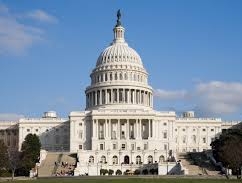Articles and News
National Retail Federation: Washington Laws And Policies Impact Retailers In 2017 January 04, 2017 (0 comments)

New York, NY—The 2015-2016 session of Congress—as well as the contentious election season—resulted in a variety of policies and plans that will have impact on retailers of all kinds. The National Retail Federation offered a year-end review of issues that came up and some that are likely to come up in 2017 under the new administration. For the complete list and more background on each, see NRF’s website, but here is a quick summation of key issues:
New employee overtime rules on hold. The Labor Department last year announced new regulations that nearly double the salary level at which employees would be eligible for overtime pay. The new regulations were set to take effect December 1, 2016, but a lawsuit brought by the NRF, various other business groups, and 21 states has resulted in a temporary injunction putting the new regulations on hold. The Trump administration is expected to either oppose the new rules altogether or issue a tamer version.
GOP proposes a VAT. A tax reform proposal offered by House Ways and Means committee chair Kevin Brady (R-TX) would replace the current corporate income tax with a 20% national consumption tax (VAT). NRF says such a tax would sharply discourage consumer spending and reduce retail sales and also hurt those consumers who can least afford it. Worse, a “border adjustability” provision would eliminate retailers’ ability to deduct imports as a cost of goods sold, effectively creating a second new tax on imported goods and driving their prices up even more. NRF vows to fight both.
NRF does support tax reform that would remove tax provisions that benefit only a few industries and lower rates for all businesses.
Repeal of debit card swipe fee caps. House Financial Services Committee Chairman Jeb Hensarling, R-TX, drafted legislation to repeal the Durbin Amendment as part of a larger effort to roll back Dodd-Frank Wall Street Reform and Protection Act. NRF opposes any repeal of Durbin, saying the cap on debit swipe fees has saved consumers billions of dollars and increased competition. Congressional Republicans and the Trump administration want to reduce banking regulation, so expect this to continue in 2017. In related legislation, Visa stopped steering debit transactions to its own network, following a request by NRF. Consumers must choose “Visa Debit” or “U.S. Debit” when using chip cards at checkout, and choosing Visa sends the transaction through the Visa network rather than a dozen less expensive bank-run networks.
What to expect in 2017. NRF believes Trump’s choice of restaurant executive Andrew Pudzer as labor secretary shows he acknowledges the importance retail plays in the U.S. economy. NRF anticipates action on tax reform, regulatory reform, and repealing the Affordable Care Act very early this year. NRF’s agenda for 2017 includes many ongoing issues relevant to retailers: swipe fees, online sales tax, trade, tax reform, patent abuse and workforce policies. There are several ways for retailers to take action and get involved, says the organization.
NRF is optimistic that the anticipated makeup of Congress has likely shifted some votes in the favor of businesses and that bipartisan majorities can be found to pass patent litigation reform and online sales tax legislation.







